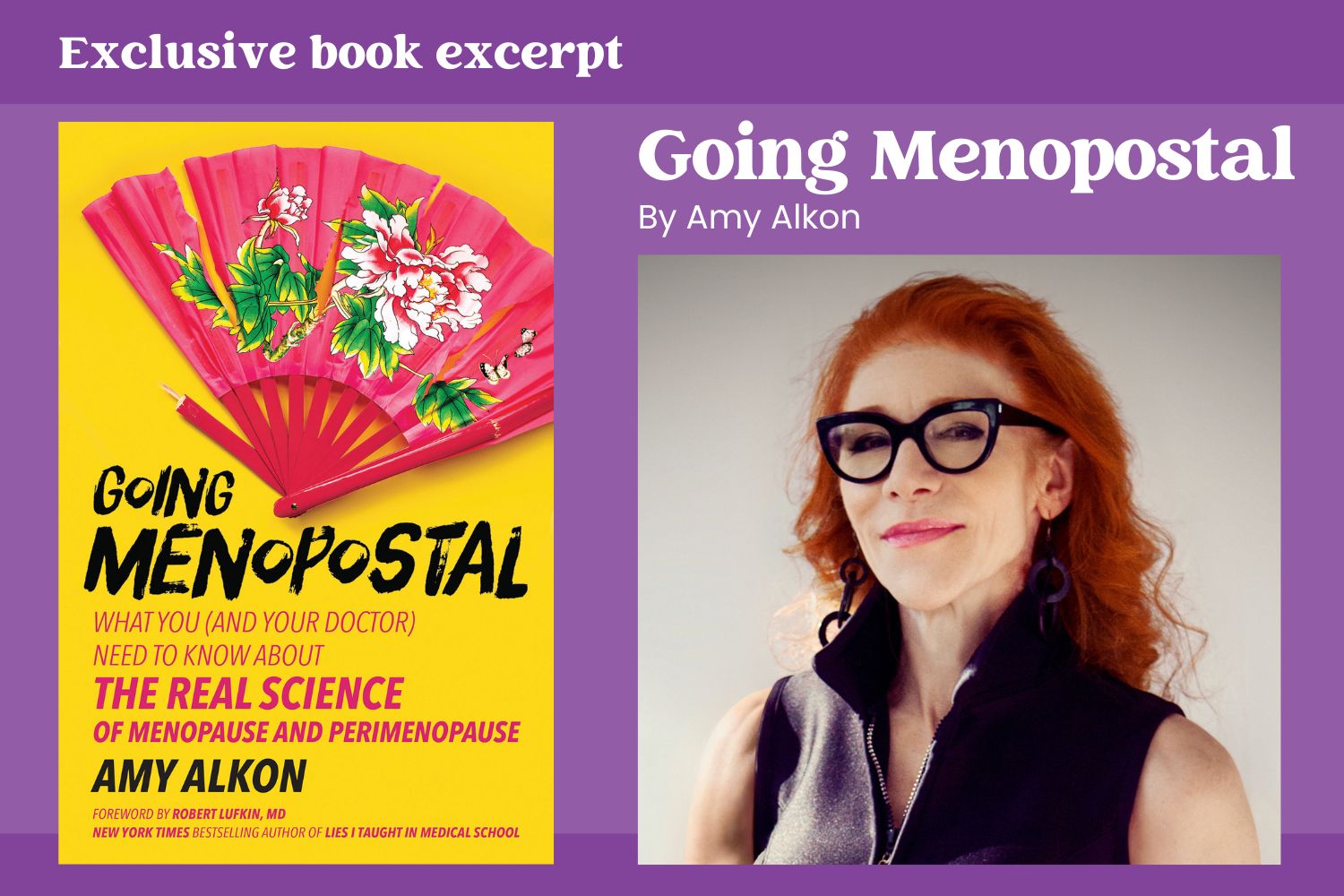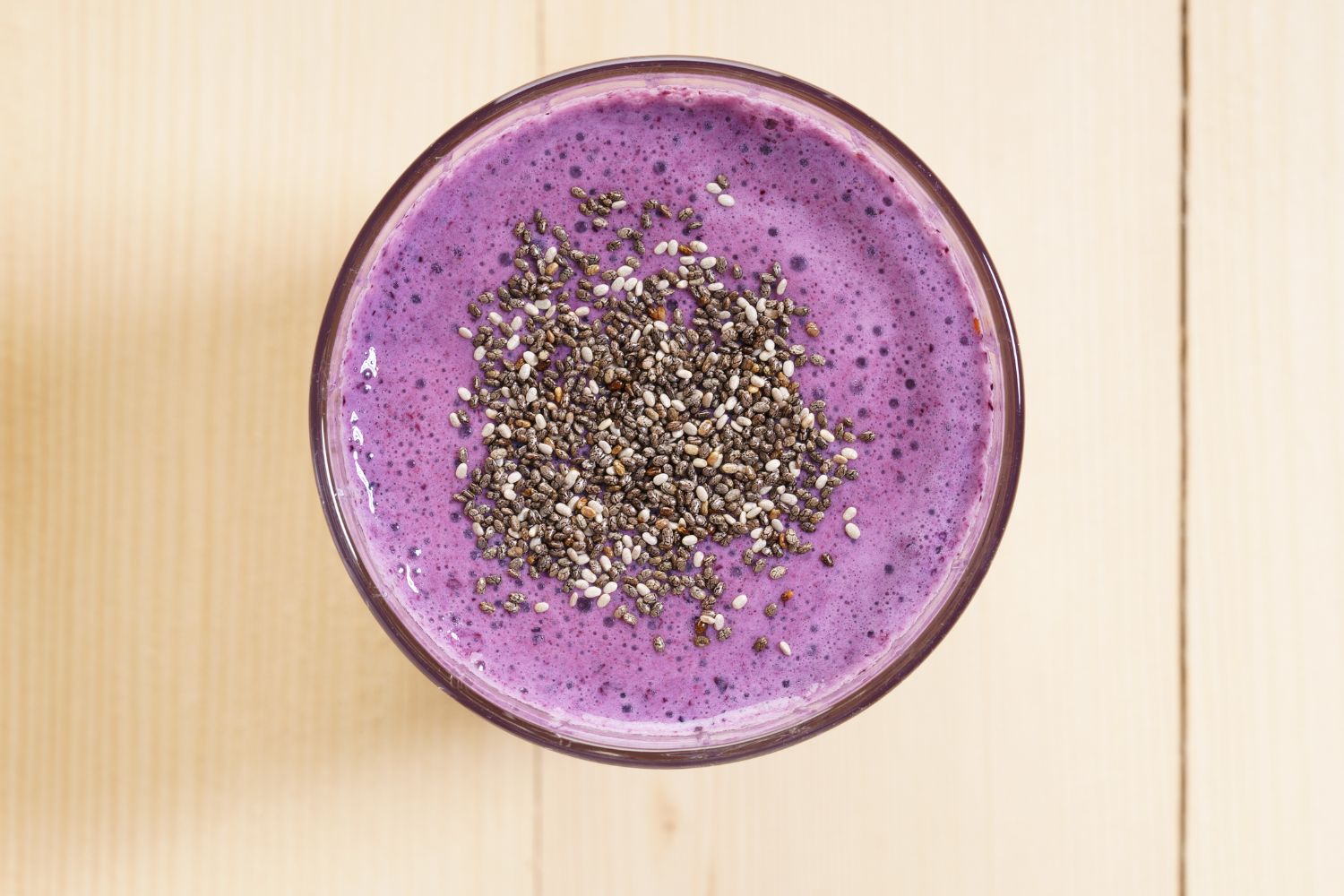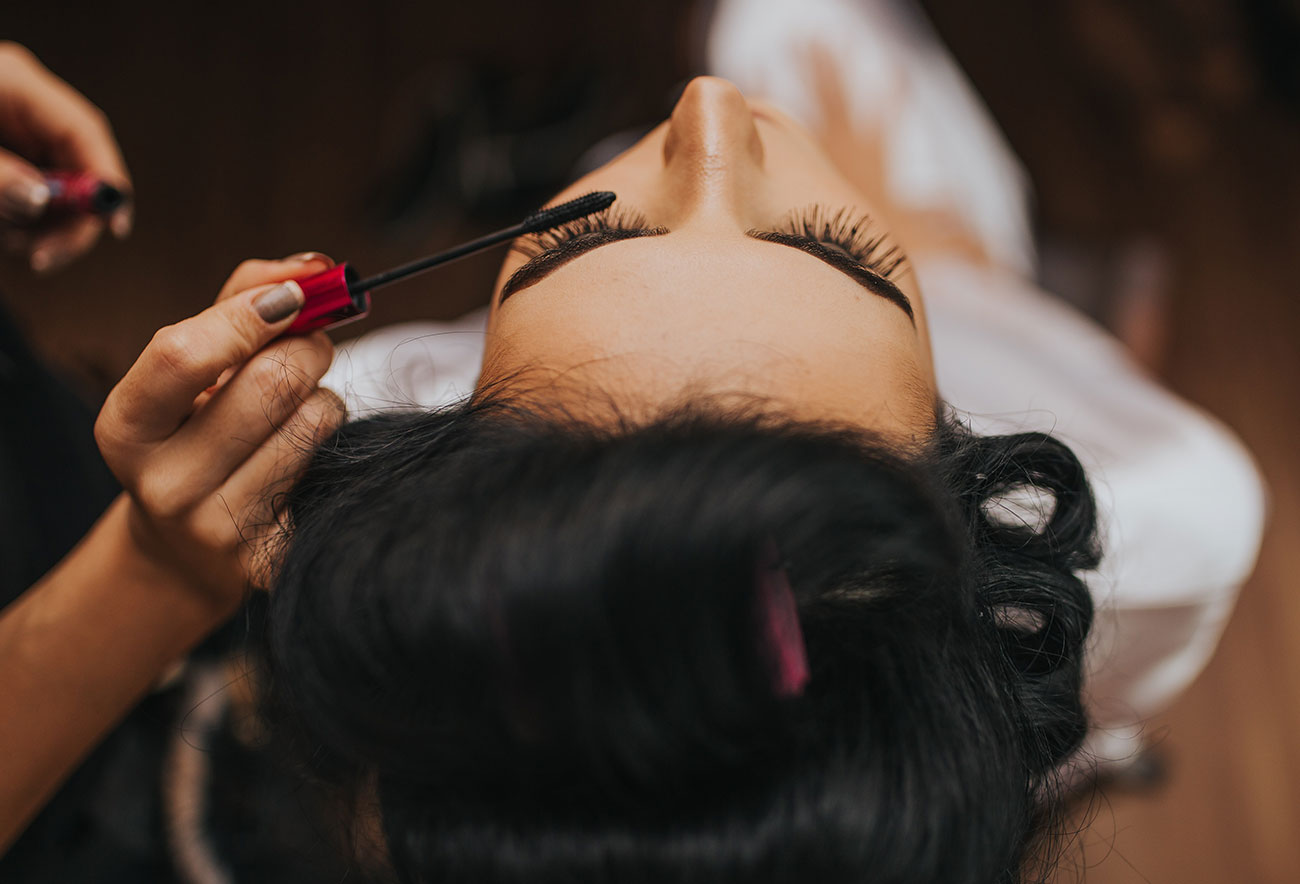
Am I really in perimenopause or just ‘getting older’?
Lately I’ve been remembering the complaints and jokes I heard from grandmothers and aunts as a kid, about what happens to women’s bodies as they age: insomnia, weight gain, moodiness. The irony is that most of them lived extremely long lives. My great grandmother lived to 90; Aunt Ann to 108; Ruth to 89, and Aunt Sue is alive and cognizant at age 102.
I’ve been thinking about them ever since my own body glitches started after my 40th birthday. Small things at first: I woke several times each night, it was tougher to lose weight, my anxiety increased, and my hormones and moods just felt out of whack, erratic.
At first, I ignored the symptoms. I was busy with work, friends, husband, dog, and volunteering. Plus, with the Trump administration wreaking havoc on life as we know it, everyone I knew had added stress. Who was I to not feel terrible when everyone else did? Plus, my health has always been linked to my brain—if I’m emotionally off-balance, I get migraines and stomachaches. So, I wasn’t sure if my symptoms were somatic, or more physiological.
In 2018, my husband and I decided to leave Chicago and move to Los Angeles. During the months of packing and moving, I continued pushing through my symptoms, apart from a few acupuncture sessions. But by the time we unpacked last spring, I was in terrible pain. I ached everywhere and had major anxiety and mood swings. The worst part was the lack of sleep; I was used to getting eight or even nine hours on weekends (we don’t have kids), but my Fitbit clearly displayed my new, fitful sleep patterns, now only five or six hours per night.
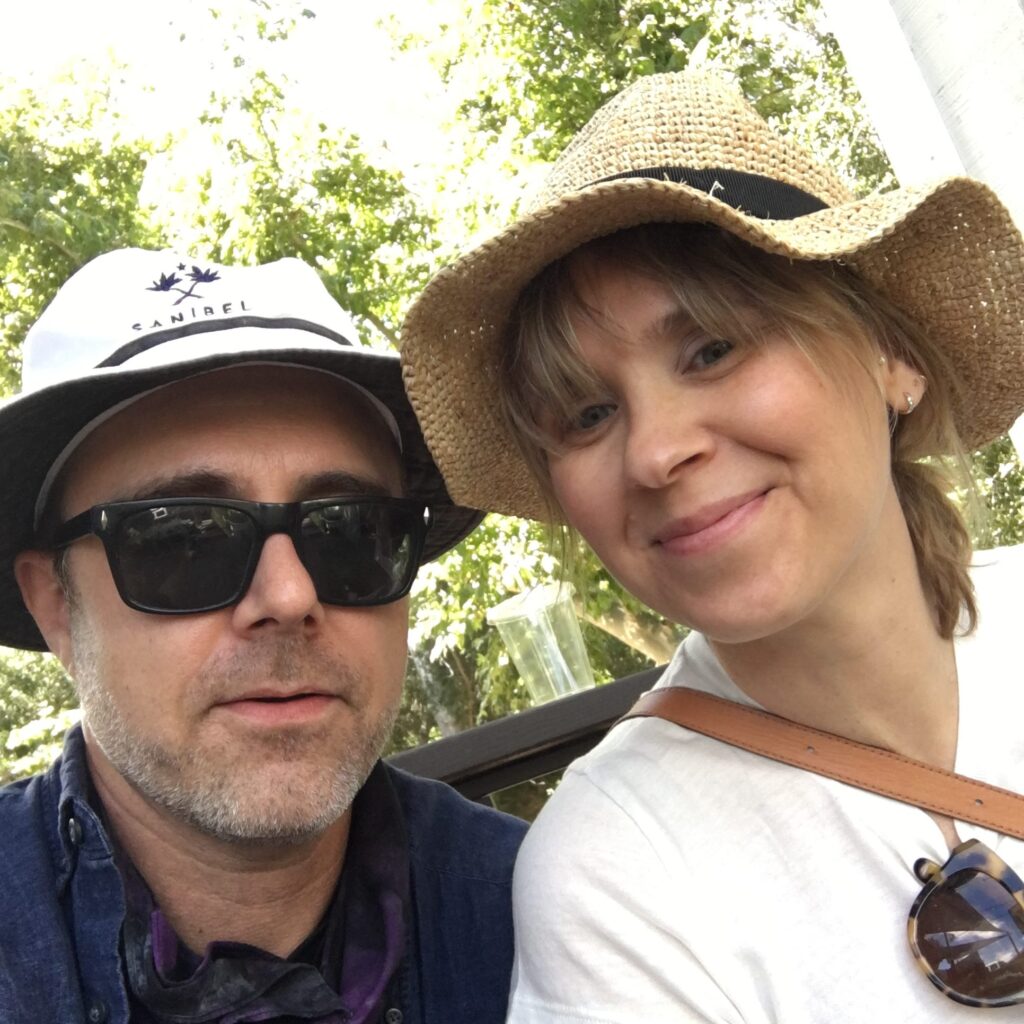
Is it perimenopause?
I soon realized my symptoms sounded a lot like perimenopause, the approximately seven-year period before menopause and a topic I’d been hearing about from pals and on social media. Online searches turned up a viral HuffPo essay, a Times piece titled Puberty for the Middle Aged, and myriad articles on health sites dispensing advice about combatting symptoms of depression, breast tenderness, rage, weepiness, hot flashes, irregular periods, weight gain, and insomnia. I started bookmarking posts about women waking at 4 a.m. with night sweats and gaining five pounds just from looking at cake.
When I asked women friends about how they were feeling, they too noted fatigue, poor sleep, and moodiness. Some had been diagnosed as perimenopausal and some had self-diagnosed, based on the same information I’d found. Finally, tired of feeling so meh, I made appointments with a new internist, ob-gyn, massage therapist, and acupuncturist. In the meantime, I reviewed those health sites. In addition to tips like getting more sleep, adding estrogen or progesterone, or going on birth control, there was advice about follicle-stimulating hormone (FSH) testing, comprehensive hormone panels, and amino acids, herbs, and supplements. But it was hard to tell what the best options were, without guidance.
My pain and tiredness were unbearable at that point, so, while I waited for my doctor appointments, I took matters into own hands by restarting my daily journaling, easy trail hikes with my dog, and yoga DVDs. I was surprised at how immediately these simple things helped. Just a few days in, it became easier to move without pain and I slept better.
Within that first week, things started to shift. During a yoga session, I had a moment where my body and mind felt connected to my breathing—as if my whole body was breathing as one entity, instead of the short and uneven breaths I’d become used to. Feeling present and connected in my body again was powerful and it made me conscious of how robotically I’d been moving through life. I realized that over the course of packing, moving, and re-settling, I hadn’t allowed myself to experience the strong feelings that came up—stress, fear, happiness, sorrow.
The move felt necessary for our careers and health (we both suffer from mild Seasonal Affective Disorder and craved more sunshine), but the transition was incredibly heartbreaking and bittersweet. I hadn’t let myself feel those things and instead just powered through tasks and to-do lists. Despite the fact that I’m a big crier, I didn’t cry once during the process of leaving the area where I’d grown up and lived the past 17 years, not even while saying goodbye to beloved family and friends. I’d been too afraid of falling apart. The closest thing I have to a spiritual teacher is Buddhist psychologist Tara Brach, and her word for this state is disembodied, when we leave our bodies and “skim life’s surface in a mental trance.” Her teachings are about learning to fully inhabit not only love and aliveness but pain, too. In a recent dharma talk, she noted, “Everything we most value in our lives (love, creativity, wisdom, feeling vibrant) is only available if we’re awake in our body. The poet Bokonon says, ‘Life is a garden not a road. We enter and exit through the same gate, wandering. Where we go matters less than what we notice.’”
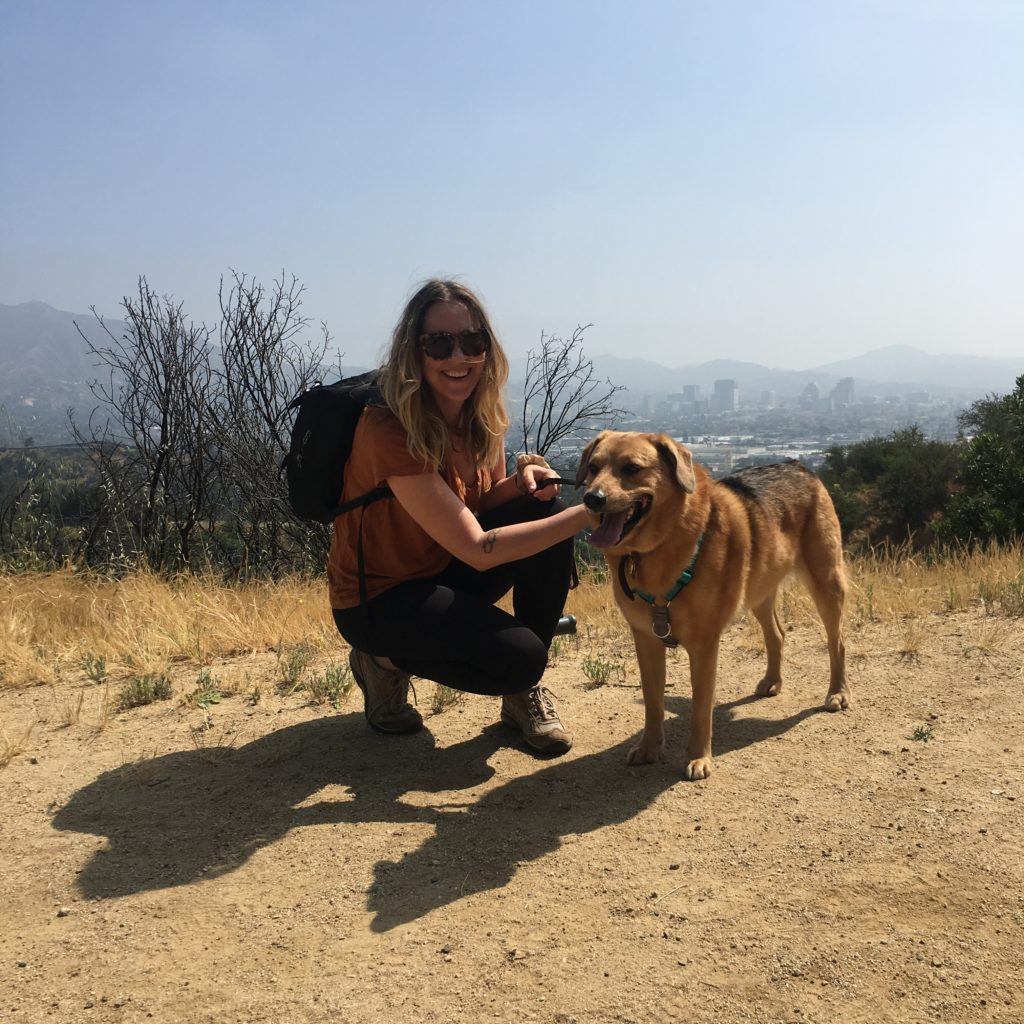
The new midlife crisis?
When I saw my new doc and ob-gyn, they reviewed my symptoms and blood tests and informed me I was not in perimenopause because I hadn’t been skipping periods. Menopause usually hits around age 51 and means you’ve had a full year without menstruation. She said I likely wouldn’t be in that phase for seven to eight years, explaining that my symptoms are just part of getting older. We discussed the new awareness of perimenopause and she joked that I could go to the west side (L.A.’s bougie, alt-medicine area) and “pay $400 for a spit test” but since I wasn’t in peri, there was no need to test for things like FSH. Frankly, I was bummed: A diagnosis would have given me a more clear-cut plan than just “aging.”
Frankly, I was bummed: A diagnosis would have given me a more
clear-cut plan than just ‘aging.’
My massage therapy sessions were similar; his deep-tissue treatments soothed my janky muscles, but his tips were common sense. Take high-elevation hikes in the sun and get back to your cooking routine, he said. You’re in bad shape but not that bad.
Even my acupuncturist recommended mostly gentle lifestyle changes like better sleep hygiene, meditation, slowing down, and taking it easier on myself. (She also tipped me off about an urban sweat-lodge for acupressure and sweating to aid water retention and sluggishness.)
All the advice boiled down to one thing: I’d become so detached from my body that becoming reacquainted was going to be a long process—no quick fixes. When I followed up with pals, several said that they, too, were informed by doctors that they weren’t in perimenopause. We talked about the major rebranding peri had received from Goop and other health sites.
In 2017, a viral Oprah piece, “The New Midlife Crisis: Why (and How) it’s Hitting Gen X Women,” noted, “Ours is the first generation to have gynecologists sit us down as early as our late 30s and tell us that signs like weepiness, hot flashes, or irregular periods could indicate that we have begun ‘perimenopause,’ a term no one used 20 years ago but now is everywhere.”
It begs the question: Is perimenopause just what we used to call “aging?” Is this new condition a marketing ploy to create another unattainable aspect of health/beauty for women to worry about (and buy remedies for) the same way we’re sold diet regimens disguised as “wellness,” 20-step skincare routines as Trump-era coping mechanisms, self-optimization via Barre class, $34 candlelit spin classes for spiritual enlightenment, and any number of solutions to things like body hair or visible pores that aren’t problems—just part of being a human being?
Is it possible that what my go-getter women friends and I are experiencing is just some basic burnout that we need to treat by doing less, instead of more? After all, rest is a radical action in a capitalistic world that ties our worth to our productivity. Maybe, as my ob-gyn suggested, the best thing to do is recognize and accept an overall lack of control around the aging process—while simultaneously instituting some sensible and consistent daily habits.
Is it possible that what my
go-getter women friends and I are experiencing is just some basic burnout that we need to treat by doing less, instead of more?
If I’m being honest, though I’ve cultivated a lot of health and self-care regimens and modalities over the years, my practice of them has been inconsistent. They’re the first things I abandon when work or loved ones’ demands come up. It doesn’t help that the list of daily routines gets longer as we age: Meditate. Journal. Stretch. Supplements. Skincare. Cardio. Pillow talk. Dog cuddles. Read. But maybe maintaining good health as you age is literally based on good habits done consistently—along with luck. Maybe this was what my ripe-aged women relatives had figured out. I remembered them as militant about their meal, exercise, church, and social routines (bingo, teas, tennis, choir), but now I know it was because they deemed these things necessary for survival.
In the past, I’d been annoyed when my mom wouldn’t relax her health standards. She turns down a single glass of wine because she gets tired. She rarely misses a workout or indulges in snacks. But now I understand that the women in my family are skilled at determining what their bodies need and not compromising on that is an act of self-love. And maybe powering through and ignoring those body-mind needs, as I’d been doing, was just the opposite.
I now know that certain daily health and self-care practices are no longer optional for me; they’re required. And I think that’s what my doctor meant by “you’re getting older.” She wasn’t saying to accept feeling shitty as an inevitable part of aging, but to accept that my body was literally no longer able to settle for substandard care.
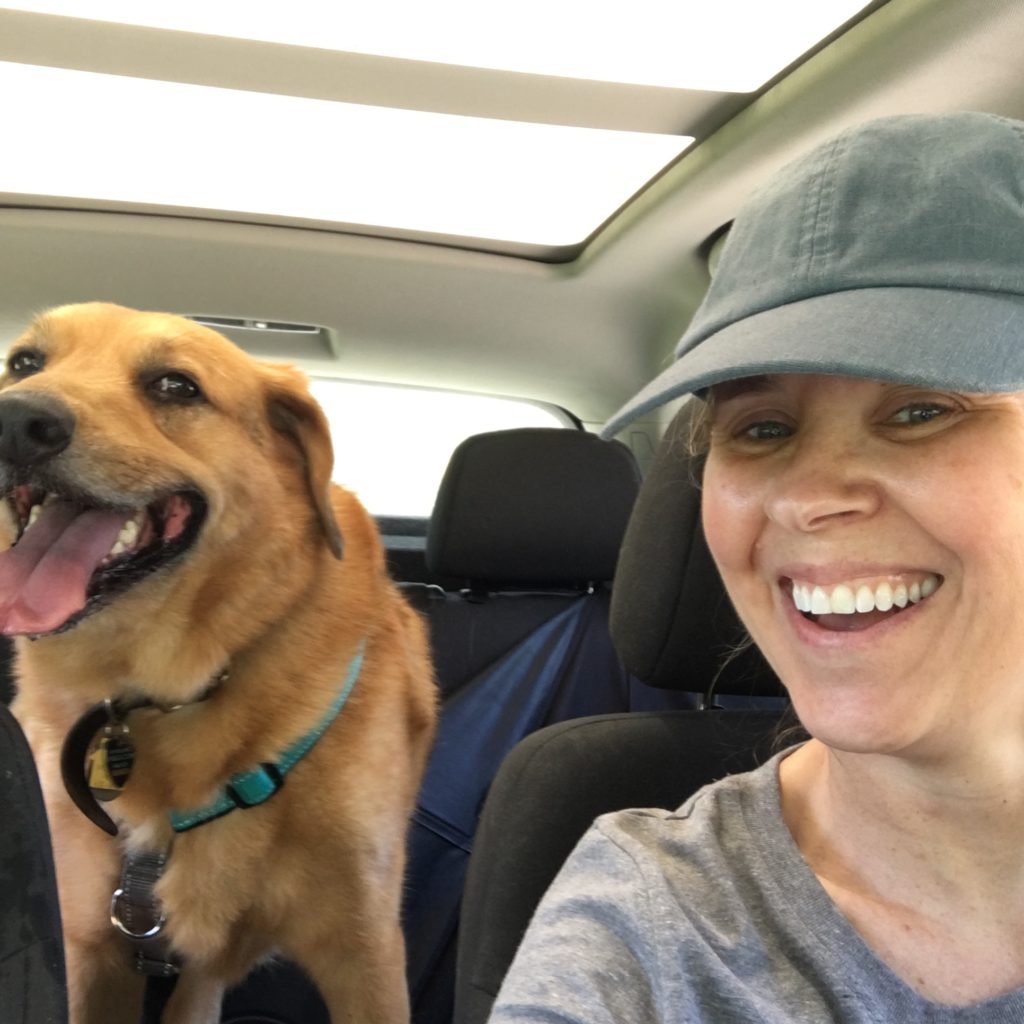
Feeling the feelings
I clearly had to find a way to acknowledge my emotions. I now recognize that much of my pain was fallout from not just ignoring my body’s needs, but also the grief and pain I felt about leaving home for a new city where I felt rootless and insecure.
And there are feelings around perimenopause itself. Not around losing my childbearing ability (I’ve never wanted kids and it’s by choice that we have only a dog-baby.) But there are feelings around a loss of time. Reaching a point where there is even the possibility of perimenopause hearkens questions about where I’m at in life: What have I accomplished? What dreams are unfulfilled? What would people say about me if I were gone tomorrow?
I haven’t wanted to be a mom largely due to the lack of social support structures U.S. mothers have and because I’ve been engaged in a long process of nurturing and becoming myself. But when perimenopause comes, it will feel more like a time marker than any birthday has. Although being child-free has removed certain responsibilities from my plate, it’s created pressure to live a life that’s purposeful enough to make sense to the rest of the world, which often seems to be comprised of women who did choose motherhood. That’s both a burden and a privilege.
I’ve been thinking about the etymology of perimenopause. In Greek, “peri” is “near,” “meno” means “month,” and “pausa” is Latin for “a stopping.” So, a woman in perimenopause is in the time before the monthly cycle stops—and I’m in the time before that time. So, what do you do before there is a stopping, a pause; a change of life? You prepare. You get ready.
So, in this stock-taking, midlife-crisis-y moment, if I’ve got only a handful of years before this change, what do I want the second half to look like? What are the most spiritually and civically responsible ways to move forward on my goals? Write a book? Engage further on social justice issues? Adopt more pets? Cultivate more creativity? How do we create lives that will fulfill and sustain us? These questions will preoccupy me for the next few years.
Over the decades, I’ve learned to do hard things despite my sensitive temperament and super-fun chemical mix of depression and anxiety. I’m proud to have a survival toolkit. But I haven’t learned how to make a daily priority of small pleasures. I’ve got a holy card my grandmother kept on her headboard that reads, “Take time to play. It is the secret of perpetual youth. Take time to laugh. It is the music of the soul. Take time to read. It is the fountain of wisdom.”
And it occurs to me that it’s the little bits of daily humanity and sensory pleasures we allow ourselves that will help us get through the challenging times. By doing those mundane things I know I need, even if they seem silly or extraneous (deep belly-breathing, journaling), I’m building a wellness reserve. Because I’ve seen how repressed emotions and self-care can back up on me, I know I have to stop moving through life’s struggles on autopilot, robotically.
So the new question is: Do I love my life enough to stick to a 9 p.m. bedtime? To give myself the slow mornings I need? To not indulge in TV binges or Instagram scrolling before sleep? To take a walk and call a friend when I’m anxious, instead of curling up in isolation? To breathe deeply and feel allllll my feelings, even painful ones that have to do with lost loved ones and immigrant children in cages and climate change? Do I love myself enough to not check out; to stay conscious and face the world’s ugliness, along with its beauty? To be present, here and now, every single day? Even in all the pain and chaos and mess of the world?
During an acupuncture session last summer, when I was having relationship struggles with several people in my life, my acupuncturist popped needles into different points in my legs, ears, and stomach. The last needle was at the top of my chest. The moment it went in, I felt brief but searing pain and a waterfall of tears gushed from my eyes, unceasing. Leigh held my hand, and whispered that our lungs are where we hold our grief. For the entire hour-long session, tears continued gushing over my face and neck as I was forced to grieve some important things I’d pushed aside. That session was a gift. It helped me face some relationship issues head on and led to our LA move. It was also the last time I’d cried in almost 18 months.
But two months ago, I went home for a visit, and basked in the balmy Midwest summer and the love-glow of friends and family. One night, I stopped on my street in my old neighborhood, where I’d felt so connected, secure, and known—the opposite of how I felt in LA. The long-delayed tears came fast and furious. I felt all the most painful things at once—the utter, all-encompassing safety and love from my community, and how I’d removed myself from it for an uncertain future in an overwhelming city. That moment was a gift, too. And that’s how I’ve decided to think about this most recent round of pain—with gratitude. Whether my symptoms were due to peri, aging, or stress, I’m grateful for them because they returned me to myself with awareness and embodiment, after a long journey away and adrift.
Looking for remedies for perimenopause? Read about the 13 things I tried to help with symptoms of perimenopause (or whatever you want to call it).


